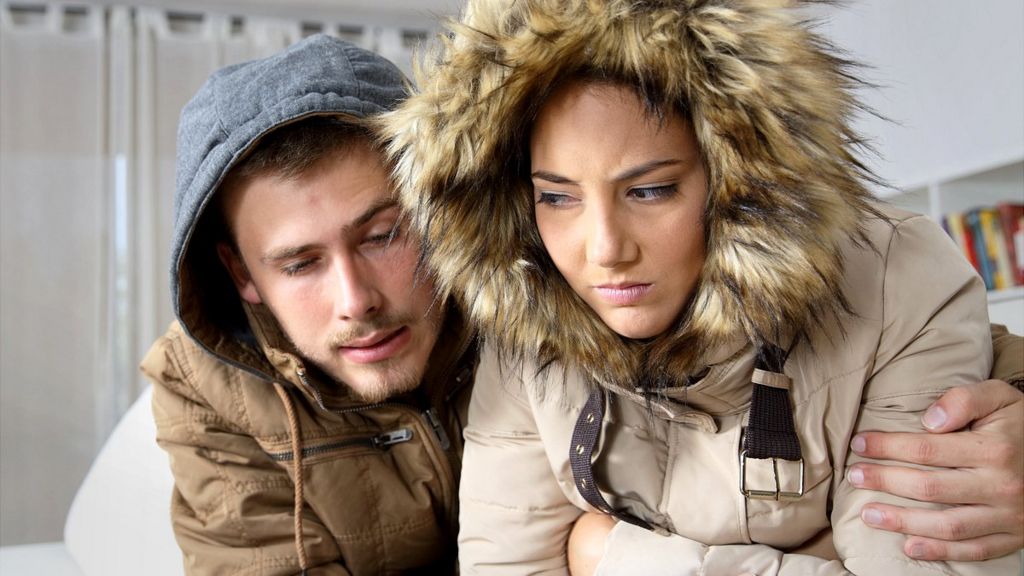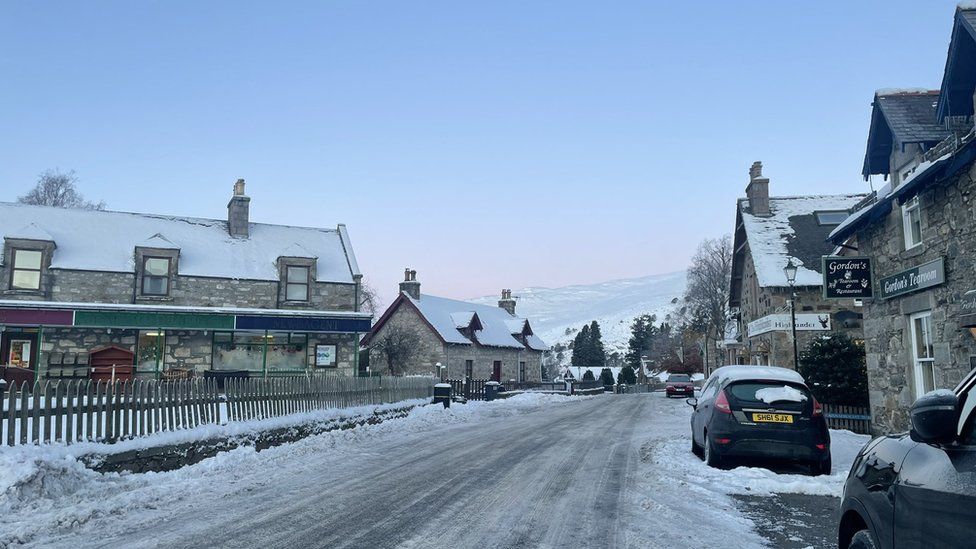 Getty Images
Getty ImagesAmbulances were called out to 800 people suffering from hypothermia during freezing weather in Scotland.
Figures from the Scottish Ambulance Service (SAS), published by The Herald newspaper, showed that about 44 people a day were taken to hospital between 1 and 18 December.
During that period temperatures plummeted to minus double figures while households faced soaring energy costs.
Charity Age Scotland said this was a “recipe for disaster” for older people.
The first half of December saw an Arctic blast hit the UK with freezing temperatures and ice and snow across Scotland.
Braemar in Aberdeenshire, was the coldest place in the UK at -15.7C, the lowest minimum temperature since February 2021.

According to the SAS figures, 799 people were taken to hospital from 1 December to 18 December with hypothermia, defined as a temperature of less than 35C.
NHS Greater Glasgow and Clyde had the highest number with 170 taken to hospital.
The lowest number of admissions was in Orkney and Shetland, where fewer than five people were admitted.

Hypothermia cases: 1 Dec -18 Dec 2022
- Greater Glasgow and Clyde – 170
- Lothian – 121
- Grampian – 80
- Lanarkshire – 76
- Ayrshire and Arran – 74
- Tayside – 66
- Highland – 64
- Fife – 51
- Forth Valley – 39
- Dumfries and Galloway – 28
- Borders – 14
- Western Isles – 7
- Orkney – Under 5
- Shetland – Under 5
- Other – Under 5

Adam Stachura, Age Scotland’s head of policy and communications, told BBC Scotland the charity was “taken aback” by the figures.
He said: “We have been concerned for months that a particularly cold winter, coupled with the energy crisis we are living through, would mean that large numbers of older people would experience hypothermia or other serious issues linked to having a low body temperature – such as heart attacks and strokes.”
“It has laid bare the stark reality of spiralling energy and living costs on our population.”
A recent survey by Age Scotland found 62% of older people had cut back on heating to make ends meet.
The charity said the low temperatures and high cost of heating homes was a “recipe for disaster” for health and wellbeing.

What is hypothermia?

Hypothermia develops when the body temperature (37C/98.6F) falls by just two degrees. It can affect anyone and even develop indoors in a cold room.
Falling into cold water can trigger it, even on a hot day, as can drinking lots of alcohol. Hypothermia can be a medical emergency and the elderly are especially vulnerable, as are young babies.
Signs of hypothermia include: Shivering and pale, cold, dry skin. Disorientation, apathy or irrational behaviour. Impaired consciousness or lethargy. Slow and shallow breathing. Slow and weakening pulse.
How to help someone suffering from hypothermia

Mr Stachura said: “We know that hundreds of older people on low incomes are not heating their homes to comfortable levels, missing hot meals, or have been staying in cold homes alone for long periods of time.
“There are no easy solutions this winter, but there have been payments from government to help with energy costs, with some more on the way, perhaps helping to give people some degree of confidence that they can use their heating more frequently.”
- What does an unheated room do to your body?
- What is the energy price cap and what will happen to bills?
Two energy assistance payments totalling £650 have been made to more than eight million low-income households.
An extra £900 in three instalments will be paid to households on means-tested benefits in spring, autumn and spring 2024.
However, an estimated 850,000 UK pensioner households do not claim Pension Credit, which is a gateway to these extra payments.
Age Scotland said its helpline on 0800 12 44 222 can offer information and advice on energy issues.
-
What does an unheated room do to your body?
-
19 November 2022

-
-
Scotland on course for coldest December in a decade
-
12 December 2022

-
-
I have cancer and can’t afford to heat my home
-
26 August 2022

-
Related Internet Links
-
Hypothermia – NHS
